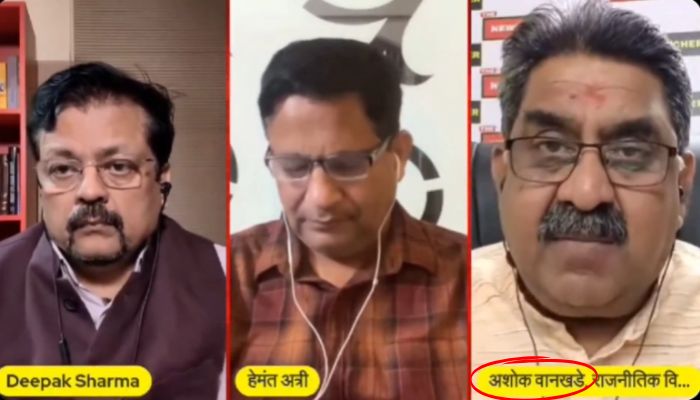 |
|
The recent Maharashtra Vidhan Sabha elections resulted in a resounding victory for the BJP-led Mahayuti, leaving the Congress-led Maha Vikas Aghadi with a mere 46 seats out of 288. This outcome triggered a dramatic reaction from Ashok Wankhede, a self-proclaimed 'neutral journalist' who openly supports the Congress party. His response wasn't one of measured analysis, but rather a public display of intense frustration and disappointment, bordering on a complete meltdown. Wankhede's outburst, shared across social media platforms, quickly became a subject of widespread discussion and debate, highlighting the deep divisions within Indian politics and the passionate reactions they evoke.
Wankhede's primary criticism was directed at the voters themselves. He framed their choice to support the BJP as a betrayal of Maharashtra's identity and a surrender to the influence of Gujarat. This accusation is particularly potent given the long-standing rivalry and historical tensions between the two states. By linking the election results to the perceived erosion of Maharashtra's distinct cultural and political identity, Wankhede tapped into deeply rooted sentiments of regional pride and self-determination. His rhetoric, however, was widely criticized for being overly dramatic and lacking in substantive political analysis. Instead of offering a balanced assessment of the election's outcome, he resorted to emotionally charged language and unsubstantiated claims.
His comments about the supposed disregard for Chhatrapati Shivaji Maharaj, a revered historical figure in Maharashtra, further intensified the controversy. This invocation of historical figures and regional symbols served to elevate the political debate to a level beyond mere electoral outcomes. By connecting the BJP's victory to a perceived slight against a significant historical figure, Wankhede aimed to mobilize a sense of outrage and resentment amongst his audience. This tactic, while effective in generating immediate emotional responses, ultimately fails to offer any constructive critique of the BJP's political platform or policies. The use of such emotive language raises questions about the role of objectivity and neutrality in political commentary.
Wankhede's claim of being a neutral journalist while simultaneously engaging in such partisan commentary highlights a crucial aspect of the ongoing debate about media bias and the responsibility of journalists to maintain objectivity. His actions raise the question of whether political leanings are compromising the ability of some journalists to present balanced, factual information. Furthermore, it underscores the difficulty in separating personal political beliefs from professional reporting. The episode with Wankhede serves as a cautionary tale for aspiring journalists, emphasizing the need to strive for impartiality and avoid inflammatory rhetoric, even when faced with disappointing political outcomes.
The aftermath of Wankhede's outburst saw a flurry of reactions on social media, with many users criticizing his lack of objectivity and emotional outbursts. His critics argued that such a response was unprofessional and undermined the credibility of his reporting. Conversely, others defended him, expressing sympathy for his frustration and echoing similar concerns about the election results. This division in public opinion further illustrates the highly polarized nature of Indian politics and the intensity of emotions surrounding electoral contests. The episode underlines the need for reasoned and respectful public discourse, even when differing strongly on political issues.
Beyond the immediate controversy, Wankhede's actions raise broader questions about the state of political discourse in India and the role of social media in shaping public perception. The rapid spread of his comments via social media platforms like Twitter (now X) underlines the power of social media in amplifying both positive and negative sentiments. It also highlights the challenges of maintaining factual accuracy and responsible communication in the digital age. The event serves as a case study on how emotional responses in the political arena can quickly escalate and become significant news stories themselves.
The incident also underscores the complex relationship between media, politics, and public opinion in a vibrant democracy like India. The intense emotions displayed by Wankhede, and the subsequent public reactions to his statements, highlight the profound impact that political events can have on individual feelings and social interactions. Analyzing this event requires careful consideration of the interplay between personal beliefs, political affiliations, professional ethics, and the dynamics of social media platforms in the dissemination of news and opinions. Ultimately, Wankhede’s meltdown is more than just a personal anecdote; it's a microcosm of the larger political landscape and its challenges.
